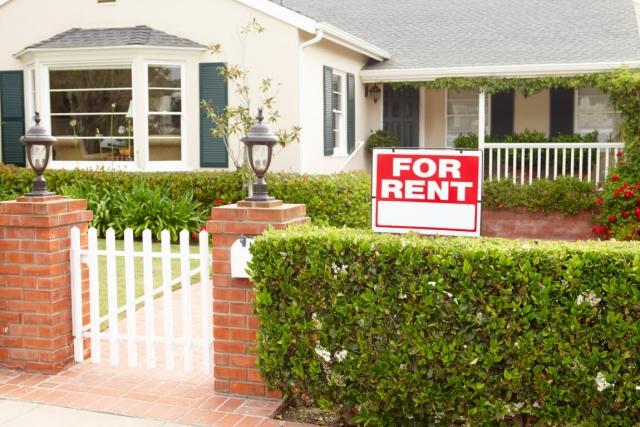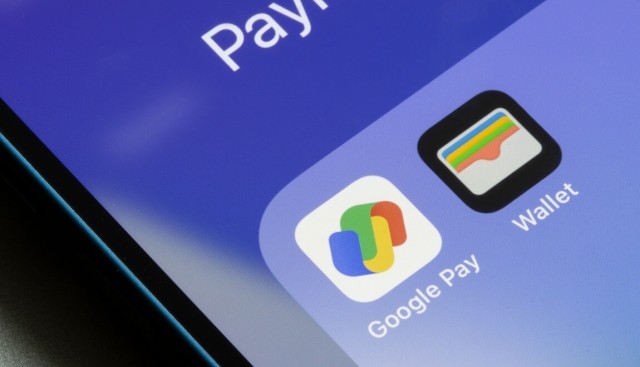When choosing between renting and buying a house, it's essential to analyze your budget and lifestyle. Renting offers affordability and flexibility, while owning a home provides potential value appreciation and stability. It's a big decision, and there are pros and cons to either option. Let's explore all of them to make sure you make the best choice for you.
In this article, we'll help you answer the following questions:
What are the cons of renting a house?
What are the cons of buying a house?
The Pros and Cons of Renting a House
If you're thinking about renting a house, you've probably decided that you want the extra space, storage, and yard that a private home provides. But is renting a house better than buying it? Let's explore some of the pros and cons.
Should I rent a house?
Limited Responsibility for Maintenance
Living in a rental property means that you need only submit a maintenance request when repairs are necessary. The property owner or maintenance staff will handle any needed fixes, sparing you the effort and expense.
No Property Taxes, Insurance, or Homeowners Association Dues
Unlike owning a home, rental expenses typically only include monthly rent, utilities, and potentially renter's insurance. You are exempt from additional costs such as property taxes, insurance, and homeowners’ association dues.
Same Monthly Payment, Every Month
When you're a renter, you will have the same bills every month. This will help you stay on a budget each month. If you own a house, you could have different bills to pay each month, such as HOA fees, property tax, or unexpected maintenance costs. Therefore, you need to do your research and look at your overall financial situation before you decide you're ready to buy a home.
Flexibility to Be More Mobile
If you're looking to live somewhere temporarily, renting a house would be the perfect option. You can sign a lease for three months, six months, or up to a year, and after your lease is up, you can choose to re-sign the lease or move to another city, state, or even country! If you buy a house, you will have to sell the house before you can move. Therefore, if you become a homeowner, you will have less flexibility to move around.
What are the cons of renting a house?
Landlord Could Raise the Rent
When you become a renter, you're only locked into that same rental price for as long as you signed the lease. Once your lease is up, your landlord or rental company may decide to raise the rent. If you decide to buy a home, you will typically pay the same amount for your mortgage payment, depending on the type of loan you have.
The Landlord Could Sell The Property
Renting a home may be the best decision for you but remember that your landlord or rental company may decide to sell your home and give you short notice that you must move out. If you decide to buy a home, you will be the only one in charge of whether or not you sell your home. Therefore, you will have more security when it comes to your home.
Less Freedom in Design Options
If you become a homeowner, you have the freedom to renovate and design your home exactly the way you want to. But if you decide to rent a house, you do not have the freedom to renovate and design your home as you see fit. You can decorate how you want, but you can't paint the walls or put holes in the wall without permission from your landlord. Therefore, if you want more freedom in how you design your home, it would be best to buy a house instead of renting one.
Limited Vacancies
When renting a house, there can be a limited number of vacant homes, making it harder to find the perfect home for you and your family. Typically, there are more homes on the market to buy than there are to rent. So, if you're looking for a specific kind of home for you and your family, it makes sense to buy a house instead of renting one.
You Won't Be Able to Build Wealth Through Home Equity
Owning real estate means building home equity through your monthly mortgage payments. While renting, you won't be able to build wealth through home equity, but you will be able to build your credit. Therefore, it's up to you whether it's more important to build wealth through home equity or build your credit score.
No Potential Tax Benefits
When you buy a house, you can write certain things off on your taxes and claim certain tax benefits for being a homeowner. If you decide to rent a house, you won't be able to write anything off your taxes or claim certain tax benefits.
There Could Be No Pets Allowed
If you have furry friends, you need to make sure that the house you've chosen to rent allows pets, and if so, check with your landlord to see if there's a one-time pet fee or pet rent you must pay. Sometimes, there are also restrictions on the breed, size, and number of pets you can have in your home if you rent.
If you've decided that renting is the best option for you, we've made it easy to find the perfect place! All you need to do is go to the Apartments.com search bar, type in the city where you would like to live and hit search. To only look for rental houses, click the "Type" button (located above the map), and a menu will drop down. From the drop-down menu, select "Houses," and then you will only be shown houses for rent.
The Pros and Cons of Buying a House
Determining whether you should become a homeowner can take time and effort. If, after reading these pros and cons, you decide to buy a house, check out Homes.com, our sister company. If you decide after reading this that you are not ready to be a homeowner, don't worry! At Apartments.com, we have plenty of houses for rent for you to choose from.
Should I buy a house?
You'll Be Able to Build Wealth Through Home Equity
One of the biggest pros of buying a house is that you can build wealth through home equity by paying your monthly mortgage payment. If you decide to rent a house, you won't be able to build wealth through home equity, but you can build your credit score by paying your monthly rent.
While buying real estate can be intimidating, your real estate agent will walk you through the process. There are programs designed to help first-time home buyers, so talk to a real estate agent about your options.
Freedom to Renovate and Modify Your Home
If you decide to buy your home instead of renting, you will have the freedom to renovate and modify your home as you see fit. You can even repaint walls if you don't like their color. You can do anything you want if you buy a house because it's yours. But if you rent a home, you won't be able to renovate and modify it how you want.
There Are Possible Tax Benefits
When you own real estate, there are potential tax benefits you can file for and receive, such as mortgage interest deductions and property tax deductions. If you rent instead, you might not receive any tax benefits, but you can increase your credit score by paying rent on time every month.
Mortgage Will Stay the Same, Even as Rent Rises
When you buy a house, if you take out a fixed-rate mortgage, you will have some peace of mind knowing that your mortgage payment will stay about the same and not change over time as the price of rent will. When you decide to rent a house, the rent price may rise once your lease is up, and therefore, you may not be able to afford the same house you could a year ago.
What are the cons of buying a house?
Less Flexibility to Move
If you're not looking to settle down anytime soon, then there may be better options for you than buying a home. When you become a homeowner, you have less flexibility to move than someone who rents since you have to sell the house you own before you can move. If you're only planning to live in your current area for the short term, it's best to rent. It takes time to build up equity to sell a home, so you should plan to live there for several years before selling.
Property Taxes, Homeowners' Association Fees, Homeowners Insurance
When you buy a house, you have to pay property taxes as well as homeowners insurance and potential HOA fees. But if you rent a home, all you have to pay for is rent, utilities, and possibly renter's insurance.
You're Responsible for Maintenance and Repairs
If you rent a home, typically, your landlord or a maintenance person oversees the maintenance and repair of the home. But if you own your home, you're in charge of maintaining and repairing your home.
You Could Lose Money if Home Values Decline
If you become a homeowner, your home could lose value if the housing market declines. This means that if you try to sell your house in a buyer's market, you could get less for your home than what you paid for it. However, if you sell in a seller's market, you could get more than what you paid for your house.
You'll Need a Large Down Payment
To buy a house, you'll need excellent credit and a hefty amount of money to put down (typically 20 percent). While it's possible to buy a house without these things, it will be more difficult, and you'll have to pay a higher interest rate. In addition to money down, you'll likely need additional money for closing costs and moving expenses.
Rising Home Prices and Low Inventory of Houses
Since the real estate market is constantly changing, sometimes housing prices can be higher than rent and, therefore, higher than you anticipated. There might also be a low inventory of the housing style you want or in your desired location.
Frequently Asked Questions About Renting vs. Buying a House
Is It Better to Rent a Home or Own a Home?
Deciding to rent or buy a house is a personal decision, and determining which one is better is up to you and your family. Consider all the pros and cons to determine the best choice for you and your family.
Is Buying Cheaper Than Renting?
Sometimes, buying a home could be cheaper than renting a home, but this all depends on the current housing market, interest rates, and location. Research the area you're interested in before you decide to buy or rent a home.






